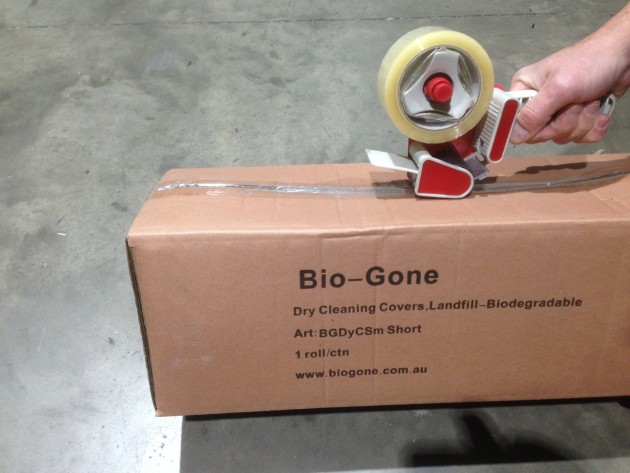Two Melbourne entrepreneurs have launched a start-up supplying landfill biodegradable plastic packaging.
Dr Ross Headifen and John Mancarella were frustrated at not being able to find sustainable options of plastic packaging such as stretch wrap, Doculopes, and pallet caps when shipping out products to their clients.
So they started the company BioGone to create a suite of landfill biodegradable plastic packaging they could use themselves, while also offering them to other businesses and consumers wanting to reduce waste.
BioGone products incorporate an organic food source additive into the plastic during manufacturing to attract naturally occurring microbes that exist in modern landfills.
The microbes seek out the food and, in the process, the enzymes they secrete break down the long polymer molecules to the point where they can be digested too. The resulting products of the biodegradation are a biogas and a biomass (humus), according to Headifen. There is no plastic residue left, or any toxic constituents.
BioGone landfill biodegradable products for businesses include packing tape hand rolls and machine rolls; pallet caps; sleeving; hand stretch wrap rolls; machine stretch wrap rolls; and self-adhesive shipment envelopes.
Headifen is also the vice-president of Melbourne’s BeachPatrol movement, which seeks to remove litter from local beaches and foreshores.
“I would rather see people say no to plastics in the first place, or recycle what they use. But with studies indicating only three per cent of some five billion plastic bags being recycled each year and 75 per cent going to landfill, we recognised the need to change the type of plastics going into landfill,” he said.
“Our BioGone plastics will be consumed by naturally occurring microorganisms and biodegrade over a few years rather than over hundreds of years.”
Headifen said the labelling of “biodegradable” plastic products is often deceptive and open to marketing manipulation.
“A “degradable” plastic is a plastic with a metallic additive that sets off a slow chemical reaction and over 12-24 months will cause the plastic to fragment into little pieces,” he said.
“This has nothing to do with biodegradation and microorganisms, and so instead of one piece of plastic we end up with hundreds or thousands of little pieces of plastic which may not be visible, but a worse result for the environment, particularly when marine animals easily consume these fragments.”






